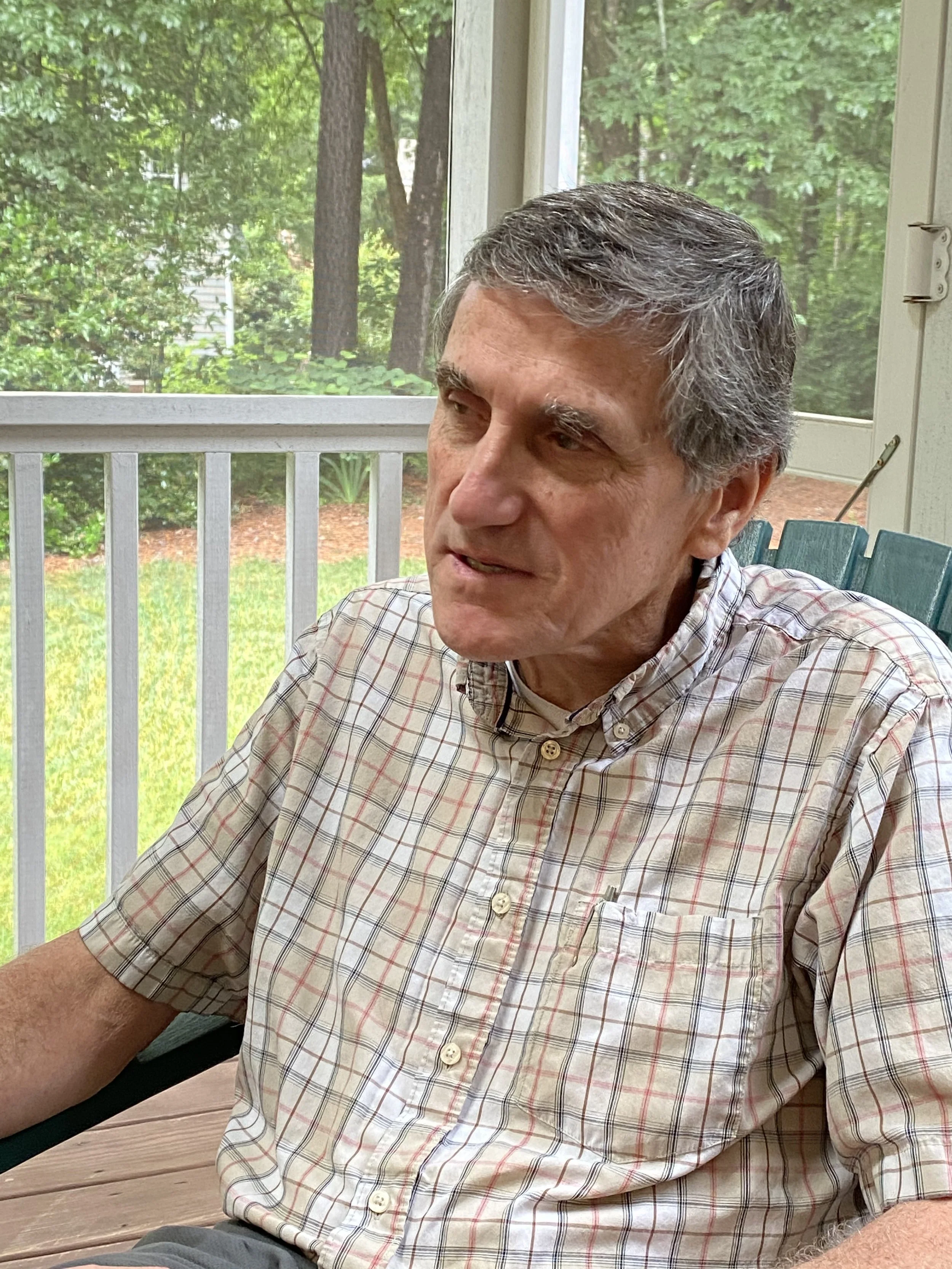Forever
By Richard S. Straw
As a child, I thought life would go on forever. The arrival, gradual climax, and passing of each season went so slowly that the view from our living room armchair of a grove of maples never appeared to change. The vista through the elms that arched over the avenue leading downtown before we turned off toward church each week seemed to meet at an “unvanishing” point—the county courthouse clock’s hands at 8. The cookie jar remained ever full no matter how many homemade peanut butter and oatmeal cookies I dunked in milk. On Sunday afternoons, we’d travel familiar country roads or cross-town, tree-lined streets to visit grandparents, aunts and uncles, and cousins. The sting of a coal shovel hitting a sidewalk crack buried in thick wet snow would sometimes jolt me awake. But then a last glimpse of our living room when I’d ascend the stairs and reach with my right hand for the smooth maple banister would restore order again.
After 9 p.m., the street corner traffic light outside my window flashed red for the side street and pulsed yellow for the main road. The blinking red and yellow blended on my bedroom’s mustard-colored wall above the glass-topped desk and against the shut closet door. The heartbeat rhythm of its orange glow soothed me as I waited for sleep, then drifted off. In summer, through the window screen, I could hear turning tires on wet streets mixed with rain in Chinese elms. Or the radios of cars approaching, pausing at the intersection, then receding would sometimes play songs in synch with the traffic light’s steady, clicking beat. Once in a while, a bird would stir above the crickets’ chirring. Each night, trains would wail their horns at crossings, but the clanking of their freight and coal cars on the rails was muffled by distance. The theme songs, laugh tracks, and dialogue of sitcoms and Westerns broadcast too late for me to watch would echo off the stairwell’s walls into the upstairs hallway then into my room: “Have Gun, Will Travel…Wire Paladin, San Francisco.” Now, this almost endless string of commuter traffic…
stoplight in rain a car radio plays “Let It Be”
Richard (“Dick”) Straw has enjoyed common pursuits with rare interest in his allotted three score years and ten, give or take a year. Retired gratefully before the jig was up, he earned an honest living as a technical editor for four decades. Now, without hesitation or warning, he inflicts his scribbles on others, for how long God only knows. His goal is not to languish but to flourish among his friends and peers, all of whom knowingly or unknowingly strive like him to remain—with every chance of succeeding—numbered among God’s teensy-weensy unforgotten souls at the final curtain call. He is the author of The Longest Time: Haibun & Essays and other smallish writings, many of which are available as free PDF downloads in the digital library at that repository well known to a select few, The Haiku Foundation, https://thehaikufoundation.org/.
In The Longest Time, he describes the writing of haibun as follows. “Writing haibun (and haiku) is like sharing memories with an old friend over a coffee or tea . . . . I've tried to share only what I've experienced, which was simple enough, as it must be for most, mixed with generous portions of silence and solitude.”
“Writing our haibun, if focused on experiences that must be told, can help us discover some meaning in the past, in particular, our family histories and relationships, providing shared parts of a universal story through our personal journeys. We shouldn't want to challenge readers with puzzles they can't decipher. Rather, we should challenge ourselves to tell stories of our ongoing struggles to understand and become reconciled with events we've lived through and faced, thereby helping others come to terms with similar events they've experienced and have yet to recognize. We may even help ourselves as we face an uncertain future.”

